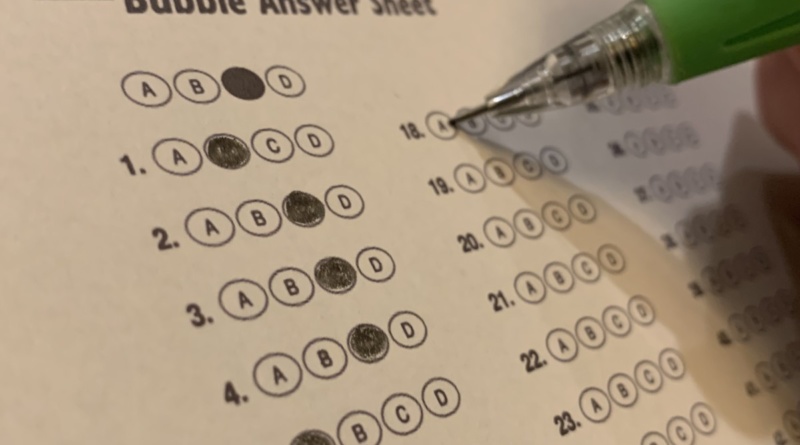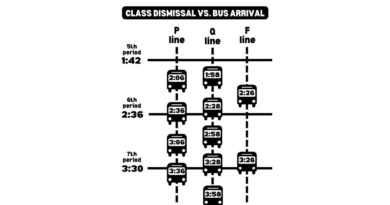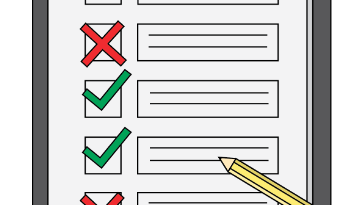OPINION: CAASPP testing has room for improvement
PHOTO: Student taking a test, filling in an answer sheet.
By Alex Miyamoto,
BlueDevilHUB.com Staff–
The California Assessment of Student Performance and Progress (CAASPP) was issued to Davis High juniors from April 11-15. The test was administered each day during the school week and accumulated to 10 strenuous testing hours.
The testing periods were built into the existing schedule, resulting in shorter periods and later than unusual dismissal on certain days.
The decision to release students later led to numerous schedule conflicts. “I usually have soccer practice right after school, but with the later dismissal it cut right into my practice (…) it was really inconvenient,” junior Sahil Sah said.
On top of later dismissal, many students questioned the long testing periods. Students were given a two hour period to complete their test. “It was a waste of time,” junior Ayden Morgan said.
Morgan believes the testing periods were far too long, noting that the majority of students finished the test early and were left to wait for the period to end.
Social studies and AVID teacher, Nicholas Gallaudet, also observed that the long testing periods, “(It) was a lot for students to sit through and by the end of the week, kids seemed pretty weary.”
While some students tried their hardest, others rushed through the test, finishing in an obviously dishonest manner. “If the testing time was half as long, I think a lot more students would give more effort,” Morgan said.
DHS art teacher, Doug Wright, also believes that additional incentives for the students would increase effort and would improve the test significantly.
Incentives would give students more excitement in taking the test, “it doesn’t have to be big, maybe like a small snack would get me more excited to take it” Sah said.
It’s apparent that since the test doesn’t affect students’ grades, they are less inclined to answer honestly. One incentive is the option that students have to release their test scores to CSU and California Community Colleges (CCC).
The scores may opt students out of placement tests and other introductory courses in college.
“If the test did not count towards college I wouldn’t even try,” Sah said.
It is clear that CAASPP testing needs improvement. As UCs and CSUs begin to reevaluate standardized testing, Gallaudet is interested to see if the CAASPP testing system will be reevaluated.



